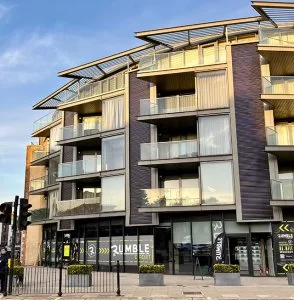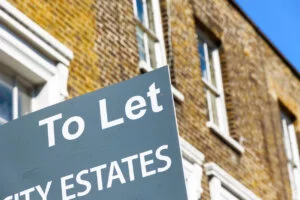Leasehold Enfranchisement
Leasehold Enfranchisement Lawyers London
Lease enfranchisement can raise the value of your property and provide security to you and other tenants. Our specialist leasehold enfranchisement lawyers will guide you through what can be a complicated process. Read on to find out more about enfranchisement, our lawyers and their experience.
Expert leasehold enfranchisement solicitors
Leasehold enfranchisement covers a collection of rights available to tenants of leasehold properties including flats, apartments and houses. Our leasehold enfranchisement services include:
- Lease extensions – We advise tenants on making statutory lease extension claims under the Leasehold Reform Housing and Urban Development Act 1993. We also act for landlords with lease extensions claims against them. Use our lease extension calculator to get an estimate of how much it could cost.
- Freehold purchase – We act for tenants who qualify under the Leasehold Reform Act 1967 in which tenants have the right to purchase the freehold so that they own the property outright.
- Collective enfranchisement – We advise groups of tenants that wish to join together to buy the freehold of their property. Collective enfranchisement was set out in the Leasehold Reform Housing and Urban Development Act 1993
- Right of first refusal – Where a landlord proposes to sell part or all of a property that contains individual flats, we advise tenants on their right to first refusal (RFR). RFR is provided by the Landlord and Tenant Act 1987
- Right to manage – The right to manage (RTM) gives tenants more control over the maintenance and repairs of their property without the need to pay a premium to the landlord. RTM was introduced through the Commonhold and Leasehold Reform Act 2002.
What is leasehold enfranchisement?
If you own a leasehold property you may be entitled to collective enfranchise under the Leasehold Reform, Housing and Urban Development Act 1993. The 1993 Act gives the rights for leaseholders as a group to acquire the freehold of the building of which their flats form part. The following three criteria must initially be met in order for you to collectively enfranchise:
- At least two-thirds of the flats in the building must be owned by qualifying leaseholders. To be a qualifying leaseholder you must have a lease that was originally granted for at least 21 years and you must not own more than 2 flats in the building.
- The building must be a self-contained building or part of one and be divisible vertically from the other parts. There must be at least two flats in the building and two-thirds of them must be held by a qualifying tenant. The building must contain no more than 25% commercial floor area.
- At least half of qualifying leaseholders must give notice of their wish to acquire the freehold interest
Do I need advice from leasehold enfranchisement solicitors?
The valuation process is rather complex and depends on a host of factors and should be carried out by a specialist valuer. Once you have your valuation your lawyer will prepare a form of notice for service on your landlord which will get the process underway. What follows entails the receipt of counter-notices and thereafter negotiation and agreement of terms, all of which have prescribed deadlines. For this reason, it is a good idea to find professionals who are experienced in this area of work, starting with a specialist solicitor and a valuation surveyor. They will work for you to ensure you get the best terms possible.
How long will the leasehold enfranchisement process take?
This is very dependent on whether the extension is a voluntary or statutory lease extension. With voluntary extensions, there are no set deadlines and therefore the length is associated with how quickly the freeholders want to proceed with the extension. Once the premium and terms of a voluntary lease extension are agreed it should complete in around 1-6 months. A statutory extension is more likely to take around 12 months as the process is more involved however there are set deadlines so the process cannot be “stalled” by either party.
Why choose Osbornes Law?
The leasehold enfranchisement process and legislation can be long and complex. Our lawyers are experts in both. We also have much experience in negotiating with freeholders and their lawyers to achieve the best possible terms for our clients. We are also used to working with specialist surveyors and are happy to make recommendations to our clients.
Osbornes Law is proud to be a founding member of the Association of Leasehold Enfranchisement Practitioners and is also an approved lawyer of News on the Block, a leading leaseholder information service.
If you would like to discuss collective enfranchisement in London or further afield further please call us and ask for Guy Osborn or Amber Larner-Bird.
I have had dealings with Guy Osborn and his colleagues at Osbornes Law since December 2019, during which time I have led a process involving 20 leaseholders in a block of flats in Camden Town. Guy and his colleagues have been impeccably professional, immensely helpful, cordial and attentive. They have always responded quickly and clearly to our queries, and helped us to negotiate the complexities of the process, which has come to a successful conclusion.
It has been nothing but a pleasure to work with Osbornes. I would recommend the firm warmly to anyone.
“Both Amber and Rachael were far more than their jobs required – couldn’t have done this without their expertise and kindness”
"Guy has been so helpful. He responded promptly to my queries, explained things clearly, no jargon, and has been warm and human throughout. I felt well supported and would recommend Osbornes to anyone looking for legal help, their service is excellent and fairly priced."
Professional and communicative throughout the process of becoming a Freehold Company and having a share of said freehold. Both Amber and Siroop spoke in plain English and were most efficient and pleasant to deal with.
Amber was fantastic from start to finish. Efficient, clear and professional. Will certainly be calling on her again.
Guy and his team assisted me with a new lease venture and were an absolute pleasure to work with. A professional & knowledgeable team who offered fast and excellent advice. Highly recommend their services
Property News & InsightsVIEW ALL
- 9.4.2025
Buying Off-Plan Properties: Key Steps To Take
Considerations and steps to take when buying an off-plan property Buying off-plan properties can be an attractive option, as many...
Read more - 5.3.2025
TOLATA Claim Settled At Mediation
Complex TOLATA claim settled after an extensive mediation We recently settled at mediation, a complex TOLATA case involving a dispute...
Read more - 4.12.2024
Security of Tenure
Security of tenure gives business tenants the right to stay in their property after the lease ends and request a...
Read more - 4.12.2024
Section 25 Notices
A Section 25 notice plays an important role in commercial leases, letting landlords and tenants know what’s next when a...
Read more - 4.12.2024
Section 21 Notices
Guide to section 21 no-fault evictions Evicting tenants is never easy but under the no-fault eviction process, it should be less...
Read more - 18.11.2024
Rent Repayment Orders
Guidance for Rent Repayment Orders (RROs) for Landlords in the UK Rent Repayment Orders (RROs) are legal orders requiring a...
Read more - 13.11.2024
Evicting a Tenant
How to evict a tenant: Guidance for landlords Evicting tenants is rarely straight forward. It is a challenging and complex...
Read more - 23.10.2024
Buying and Selling Homes in Hampstead Garden Suburb
Buying a house in Hampstead Garden Suburb While character, green spaces and the best of domestic architecture are big draws...
Read more - 16.10.2024
Managing Litigants: Court Powers and Defendant Options
How can the court control a litigant? Most people wish to live out their lives without the need to face...
Read more - 15.10.2024
How do you determine a boundary?
Whether the boundary dispute relates to a rear garden boundary or whether it relates to a driveway, the issue of...
Read more - 14.10.2024
Can You Challenge a Restrictive Covenant?
Challenging a restrictive covenant! Is it obsolete? It is well known that section 84(1) of the Law of Property Act 1925 allows...
Read more - 12.8.2024
Buying a Second Home
Buying a second home is an exciting step, but it comes with several considerations, including understanding the rules for buying...
Read more - 27.5.2024
The Leasehold and Freehold Reform Bill 2024
The Leasehold and Freehold Reform bill was one of the last pieces of legislation to make it through Parliament on...
Read more - 22.3.2024
The Renters Reform Bill
A Review of the Renters Reform Bill The 2019 Conservative Manifesto made a commitment to end “no fault evictions”. This has...
Read more - 22.3.2024
Client successful in TOLATA proceedings
The case related to proceedings under the Trusts of Land and Appointment of Trustees Act 1996 (“TOLATA”) in respect of joint...
Read more - 23.1.2024
Freehold Service Charge Disputes
Service Charges & the Leasehold and Freehold Reform Bill The Leasehold and Freehold Reform Bill was introduced to Parliament on 27...
Read more - 23.1.2024
Know your Rights (of Way)
If you have a question or concern over a right of way on your property, it is important to seek...
Read more - 23.1.2024
Party Wall Etc Act 1996 v Common Law
The case of Power & Kyson & Shah [2023] EWICA Civ 239 The case of Power & Kyson & Shah [2023] EWICA Civ 239...
Read more - 8.11.2023
Leasehold update: A new Leasehold and Freehold Bill...
Yesterday, 7th November 2023, in the King’s Speech we heard the following: “My Ministers will bring forward a bill to...
Read more - 27.10.2023
The Building Safety Act 2022
Introduction to the Building Safety Act 2022 This much awaited Building Safety Act 2022 was introduced into Parliament on 5th May 2021 as...
Read more - 22.8.2023
Reasonableness of Service Charges
Reasonableness of Service charges under the Landlord and Tenant Act 1985 It is well known that the relevant costs that a...
Read more - 19.5.2023
Declaration of Trust for Property
If you are buying a property jointly, you may want to consider making a declaration of trust to record your...
Read more - 11.5.2023
Lease Extension Negligence
What is Lease Extension Negligence? Solicitors Negligence when a Tenant claims a new lease of a flat under the Leasehold...
Read more - 11.5.2023
Overlooking Nuisance Claims
The Supreme Court’s Ruling on Overlooking as Private Nuisance In the case Fearn v Tate (2023) UKSC 4, the UK Supreme...
Read more


























